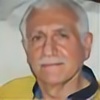HOME | DD
 AlberichPotter — Asia '92 Diary - Day 113
AlberichPotter — Asia '92 Diary - Day 113

#1992 #asia #black #china #diary #dragon #film #filmphotography #gongyuan #jade #jadedragon #journal #lijiang #mountain #park #photography #pool #snow #snowmountain #travel #yulong #yunnan #jadedragonsnowmountain #xueshan #yulongxueshan #heilongtan #xuanke #heilongtangongyuan #blackdragonpoolpark
Published: 2018-05-17 06:46:02 +0000 UTC; Views: 1175; Favourites: 57; Downloads: 11
Redirect to original
Description
No photographs taken today or tomorrow so this is one from three days earlier at Heilongtan Gongyuan (Black Dragon Pool Park), the one time during my stay in Lijiang when Yulong Xueshan (Jade Dragon Snow Mountain) was completely free of cloud.Day 113 - Sunday 17 May
Lijiang
Activity had commenced at half past five this morning. I knew that Patrick and the English guy were leaving for Jinjiang on the six-thirty bus but it seemed that the new guy, Australian by the sound of things, was also leaving. After only one night? I thought. Between them they made a lot of noise and had the light blazing but they left at six o’clock, leaving me to go back to sleep. I didn’t get up until half past nine and then didn’t do very much apart from cutting my toenails. I was undecided what to do, both today and for the next couple of days. Outside it looked to be another day like yesterday and I was now getting more than a little bored with Lijiang, having visited nearly all the sights that I wanted to. I still wanted, if possible, to make the trip to Shigu, but it was already too late to do that today, and I no longer wanted to ride out to Baisha again to visit Fuguosi, the one monastery I had yet to visit, especially if the weather was to going to remain cool and cloudy.
Still in a state of indecision I sorted out my dirty washing and took it along to the office to get a ticket and to pay for my room for another night. The guy at the desk seemed incredulous that I should want any washing done today. Why not? I asked him, equally bemused as he. Because it’s raining. True, they could not hang it out to dry today if it was raining, but surely that did not prevent them from washing? He reluctantly wrote me out a ticket and I took my bag along to the laundry room. The washerwoman on duty was equally as astonished as her colleague in the office had been and started babbling away at me in a stream of rapid Putonghua whilst at the same time meaningfully pointing up at the sky to make sure I knew what she meant. What is it? Don’t Chinese washing machines work when it’s raining? I added that it didn’t matter if it wasn’t dried today but the clothes still needed to be washed. As this was beyond my grasp to communicate to her in my limited Chinese it was all said in English, so I don’t suppose it meant very much to her. I deposited the bag of clothes with her to do as she saw fit and then left.
As it was still raining I had to put my Berghaus jacket on before walking to Peter’s for a late breakfast at almost eleven o’clock. I ordered porridge with bananas, hot chocolate with brandy, and green tea, all of which served to warm me up considerably; not that it was particularly cold, just rather damp and gloomy. I then sat writing my diary until about midday. My daily diary chore completed I remained at Peter’s reading over what I had intended to be my last cup of tea, until Michelangelo and Jay came in for lunch. Seeing them eating made me feel hungry again, even though I had not long since finished breakfast, and I ordered a Naxi soup. It was an enormous bowl of vegetables in a steaming, albeit fairly thin broth, and was extremely tasty. After we had all finished eating we sat around the table drinking more tea until the money changing lady came along. As I was now down to my last couple of RMB100 notes I changed another FEC600 with her at a rate of 1.10. The irony of changing money on the black market directly beneath the gaze of the giant statue of Mao Zedong made me smile.
By this time it was after two o’clock and we decided to leave. All three of us intended to visit Xuan Ke, the other two via a video game arcade and me by way of the bus station across the road. I had intended to ask again about buses to Shigu and hopefully book a ticket for tomorrow, but there was nobody on duty at the ticket counter, and so I walked along towards the old town in the light drizzle to find Xuan Ke’s home.
It was a small, two room apartment on the third floor of an old wooden building and absolutely full of books, photographs and other memorabilia. A young Anglo-Irish couple were already there when I arrived and were about to listen to a tape of one of the chapters of Peter Goullart’s book Forgotten Kingdom, an account of the Lijiang area and the Naxi people between 1942 and 1949. The chapter we heard was all about suicides (very cheerful!) which were evidently very prevalent during the eight years that he lived in Lijiang, largely because of the conflict between the traditional Naxi ideas and the apparent desire of the dongba, priests of the Tibetan Bon religion, to impose the Han ideas of arranged marriages on the people. It seems that the dongba profited greatly from the fees paid for the funeral rites and rituals that followed such deaths and so were not averse to prolonging the conflict in their own interests. The tape of the book had been read and recorded by the American professor who had been in Lijiang since my arrival, until his departure on Friday, and I have to give him great credit for his excellent story-telling voice. Michelangelo and Jay had arrived midway through this tape and, after it had finished, Xuan Ke played us various other tapes, including Naxi music such as we had already heard at the concerts, Naxi folk music, the Tibeto-Naxi chanting of a group of six local lamas, and various other bits and pieces of music.
We were also shown many different books and photocopies of articles and leaflets. The undoubted highlight of what we saw were some of the Naxi books, written in the distinctive pictographic writing. Apart from the script itself what marked these books as so outstanding were their age and state of preservation. Many were more than three hundred years old and, although a little frayed around the edges in places, the writing was as clear and as bold as the day they were written. Xuan Ke explained that this was because of the particular qualities of the paper and ink that had been used. They were apparently treated with some local herbs that were especially repugnant to the insects that would normally destroy such matter over the course of time.
Xuan Ke told us that these books were one of his secret treasures and that the Chinese authorities were unaware of their existence. He asked us to keep this information strictly to ourselves for fear that, if word got out, they would be confiscated by the government and perhaps lost to the Naxi people forever. The esteem with which Xuan Ke was held by the local community as the preserver of Naxi culture was later demonstrated when one of his students, a young man from one of the surrounding villages, arrived with another half a dozen such books to be entrusted into Xuan Ke’s safe keeping by the village elders. He also elaborated further on something that he had touched on before during one of our earlier conversations; his 21 years of imprisonment from 1958. Evidently one of the main reasons for his incarceration had been his witty comment that Mao Zedong must be the Second Coming of Jesus Christ because he was born on 26th December. Once this had been reported in the local press the authorities took a very dim view of such a sacrilegious comment about the Great Helmsman and promptly arrested him. For the first ten years of his imprisonment Xuan Ke had been chained up in a small cell in a cruciform position, which the authorities saw as a fitting punishment for his comments comparing Mao to Christ which had led to his arrest, and also in symbolism of his position as a conductor, although admittedly I didn’t quite understand that analogy. He showed us the scars on his wrists where the chains had cut in and also the now healed holes in the palms and sides of his hands where they had actually been nailed to the wall. Understandably he does not have much faith in the system of Chinese Communism, even now that it appeared to be coming down on the side of reform. He said that he had seen such fleeting changes too many times before to be so readily persuaded that the leopard was truly changing its spots.
The young couple left at around four o’clock but Michelangelo, Jay and I remained for another hour or so until Xuan Ke’s wife, very young and pretty from the fleeting glimpse that I caught of her on the staircase, came to tell him that they had just been invited to a banquet this evening. I got the distinct impression that Xuan Ke was very much enjoying his time in the limelight and status as local celebrity, and after the ordeals that he’d had to endure between 1958 and 1979 who could blame him? Before leaving I asked if he had any of the small pipes for sale. He went to have a look in his stores and said that he had six of them currently and then went on to give a demonstration of how they should be played, including how the reed should be fitted and then wet before playing, and how they should be kept. I bought two as I had hoped to for Linda and Shauni, and Michelangelo and Jay purchased one each. And then, with a final round of handshakes and thanks for a wonderfully enjoyable afternoon, we all left to let him prepare for his banquet.
I returned to my hotel room to find that I had no new room-mates as yet and that my laundry was not ready for collection, hardly surprising given the miserable, damp day that it had been. I wasn’t sure that I could now be bothered with a trip to Shigu tomorrow, even assuming that I could get a bus ticket, and I wouldn’t be able to leave for Jinjiang either if my laundry wasn’t ready, so I thought that I may as well take up the invitation to visit Xuan Ke again tomorrow afternoon as I was sure that he still had many more fascinating stories to tell. I spent the next half an hour catching up on my journal before settling down to read before shower time. I did try the television briefly but there was nothing inspiring to be found, for a cynical westerner such as me at least, so it didn’t stay switched on for much more than five minutes. Having had my shower I went out for a quiet dinner on my own at Mimi’s, not speaking to another soul other than the waitress. On returning to my room I read the rest of The Tightrope Man, the Desmond Bagley novel that I had swapped for my Berlitz Chinese phrasebook. It wasn’t a bad thriller but was now very dated.Related content
Comments: 14

👍: 0 ⏩: 1

👍: 1 ⏩: 1

👍: 0 ⏩: 0

👍: 0 ⏩: 0

👍: 0 ⏩: 1

👍: 0 ⏩: 0

Thanks Gosia! One of THE classic shots in China, and very rare to see the Jade Dragon totally naked!
👍: 0 ⏩: 1

Yes, it is an absolutely stunning shot.
👍: 0 ⏩: 0

Thank you very much for this award, but I could not have done it without . . . . !
👍: 0 ⏩: 1

👍: 0 ⏩: 0

Thanks Claudio! 26 years on and I still can't decide if I prefer the shots with or without clouds!
👍: 0 ⏩: 0


















